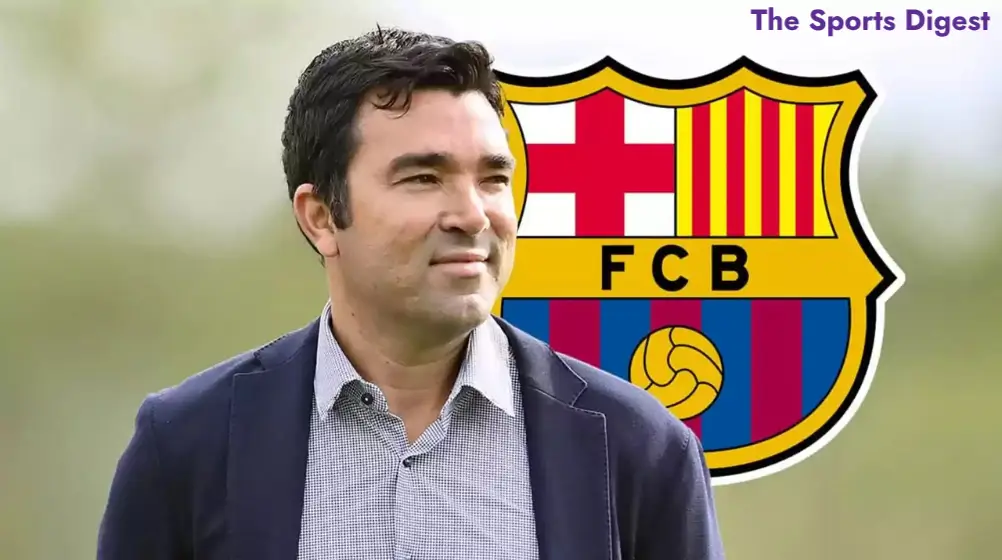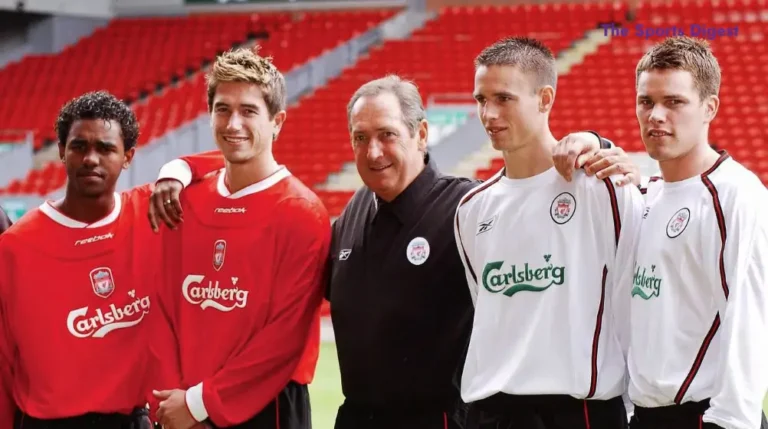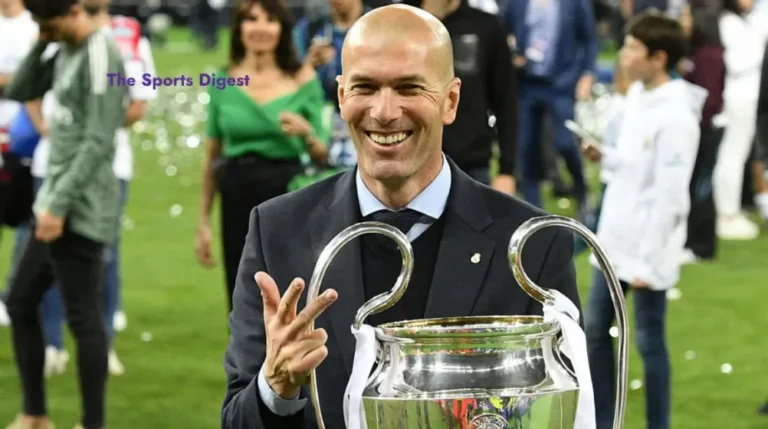Deco’s Legendary Career: Path to Football Success
Anderson Luís de Souza, commonly known as Deco, is one of the greatest playmakers in the history of football. Born in Brazil with Portuguese citizenship, Deco’s football journey is nothing short of remarkable. His journey spans several major clubs, from Porto to Barcelona, Chelsea, and Fluminense, with numerous individual and team achievements along the way. Deco’s exceptional abilities as a midfielder, his incredible passing accuracy, and his vision on the pitch have earned him a place among the greatest footballers of his era. In this article, we will delve into Deco’s career, exploring his club transitions, achievements, and his profound impact on the beautiful game.
Table of Contents
Deco’s The Early Years in Brazil: A Promising Start
Deco’s career began in Brazil, where he played for Corinthians, a club renowned for producing talented players. It was here that The Legend first honed his skills, and his talent quickly became evident. However, his big break came when he moved to Portugal at the age of 19. Deco joined Benfica in 1997, but his time at the Lisbon club was not as successful as he had hoped. Despite his potential, he struggled to find his place in the team, and the club eventually sold him to a smaller Portuguese side, Alverca.
At Alverca, Deco flourished. His performances on the field caught the eye of bigger clubs in Portugal, and it was not long before he moved to one of Portugal’s most prominent clubs, Porto. His time at Alverca proved to be a springboard for his career, allowing Deco to develop his skills and gain the experience that would later serve him well at the top level.
The Rise at Porto: A Breakthrough in European Football
In 1999, Deco made a move to FC Porto, a club that was on the verge of becoming a European powerhouse under the management of José Mourinho. This was the turning point in Deco’s career, as he became an integral part of Porto’s success. His ability to control the midfield, create chances, and make accurate passes made him a standout player.
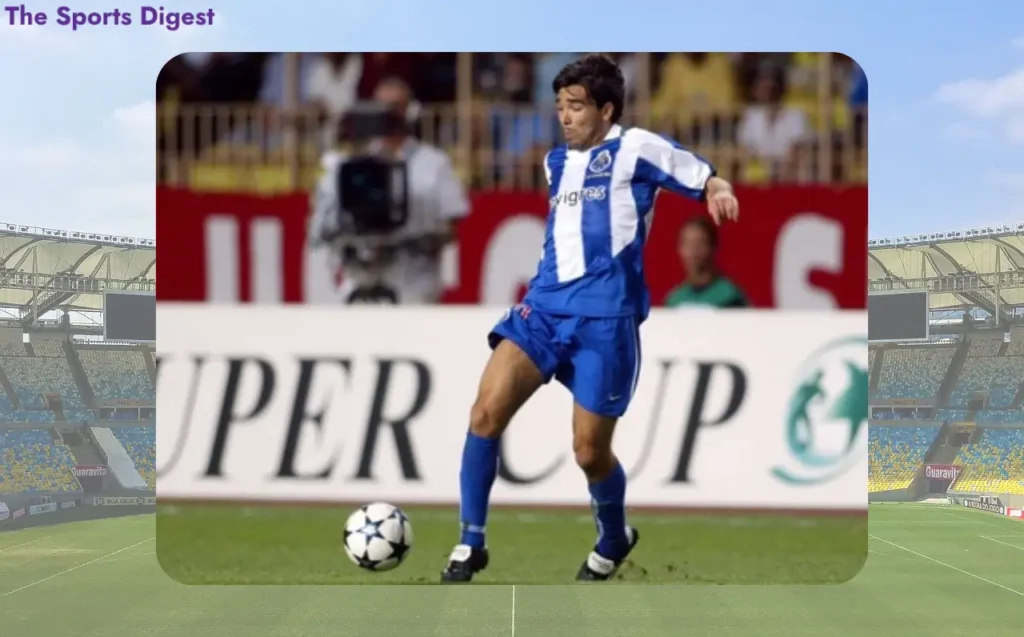
At Porto, Deco quickly adapted to the high demands of the Portuguese league and European competitions. He played a key role in the club’s triumphs, winning back-to-back Portuguese league titles, the UEFA Champions League in 2004, the UEFA Cup in 2003, and the Taca de Portugal. His performances in the Champions League, especially in the final, cemented his place as one of the best midfielders in the world. His versatility and skill on the ball made him a fan favorite at Porto, and he soon became one of the most sought-after players in Europe.
Move to Barcelona: A New Chapter in Spain
In 2004, Deco made the significant move to Barcelona, one of the biggest clubs in Spain, and one of the most storied football clubs in the world. Barcelona had been in search of a player who could provide creativity and stability in the midfield, and Deco was seen as the perfect fit for the club’s style of play. Under coach Frank Rijkaard, Deco quickly became a key player for Barcelona.
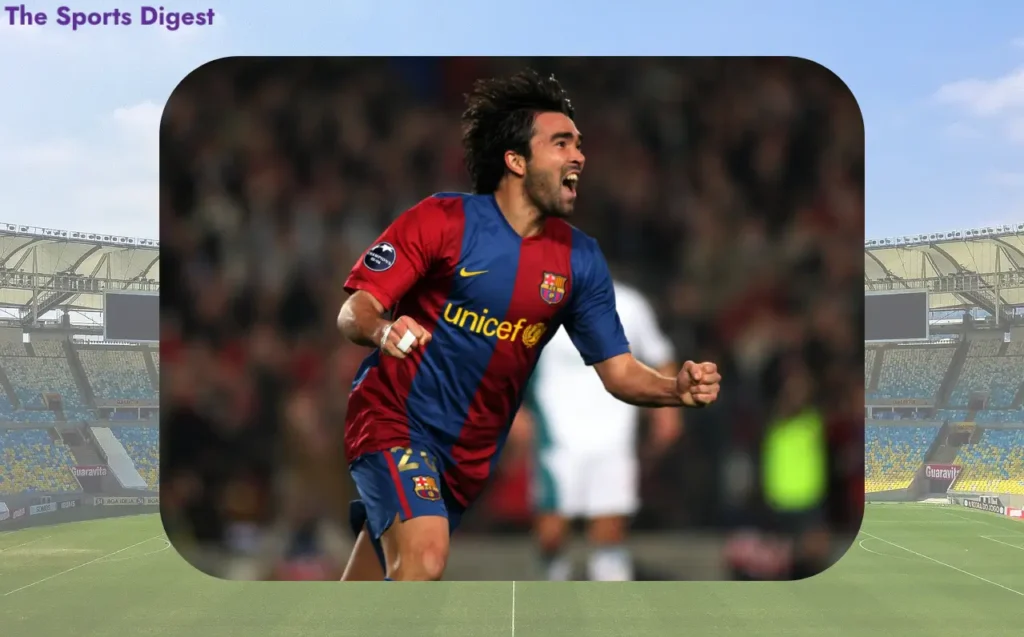
His first season at Barcelona was a successful one, as the club won La Liga, and Deco played a crucial role in the team’s success. He was not only a creative force in the midfield but also a physical presence, able to break up opposition attacks and set up counter-attacks with his precise passing. In the 2005-2006 season, Deco helped Barcelona win the UEFA Champions League title, defeating Arsenal in the final. He also won the Spanish Super Cup, further adding to his collection of trophies.
Deco’s time at Barcelona was marked by both successes and challenges. While he played a pivotal role in the team’s victories, his relationship with some of his teammates and the coaching staff was sometimes strained. However, Deco’s talent was undeniable, and he continued to be an important player for Barcelona until his departure in 2008.
- International Success with Portugal : In addition to his club successes, Deco was an integral part of the Portugal national team. His international career began in 2003, and he was immediately called up to represent his country in major tournaments. Deco played a crucial role in Portugal’s run to the final of UEFA Euro 2004, which was held in Portugal. Although Portugal lost to Greece in the final, Deco’s performances in the tournament made him one of the standout players.
In 2006, Deco was part of the Portugal squad for the FIFA World Cup in Germany. He played a key role in helping Portugal reach the semi-finals, where they were narrowly defeated by France. Deco’s vision and passing ability were critical to Portugal’s success, and he was one of the standout performers for the national team.
Deco continued to play for Portugal in subsequent international tournaments, including UEFA Euro 2008 and 2012. Despite not winning a major tournament with his national team, Deco’s contributions to the Portuguese side were invaluable, and he remains one of the greatest midfielders to have played for the national team. - Chelsea and the English Challenge : In 2008, Deco made the move to England, signing with Chelsea for a reported fee of £15.79 million. Under the guidance of Brazilian coach Luiz Felipe Scolari, Deco was expected to bring his creativity to Chelsea’s midfield. The Premier League posed a new challenge for Deco, but his technical skills and experience made him an important player for the club.
- At Chelsea, Deco won the Premier League title in the 2009-2010 season and was part of a strong midfield unit. Despite not having the same level of impact as he did at Barcelona or Porto, Deco still contributed to Chelsea’s success, helping them win domestic titles. However, his time at Chelsea was not as smooth as his previous stints, as injuries and tactical changes limited his playing time.
- Return to Brazil: A Final Chapter with Fluminense : After a few years in England, Deco returned to Brazil in 2010, signing with Fluminense. His move to Brazil marked the final stage of his illustrious playing career. At Fluminense, Deco continued to demonstrate his skill, providing key assists and showcasing his football intelligence. Although his playing time became more limited due to age and injuries, Deco’s experience and leadership were invaluable to his team.
- At Fluminense, Deco continued to impress in the Brazilian league, and although he was not as dominant as in his earlier years, his ability to influence matches was still evident. His time in Brazil represented the final chapter of a career that had seen him play at the highest level of club and international football.
Deco’s Playing Style: A Master of the Midfield
Deco’s playing style was defined by his exceptional technical ability and vision. As a central midfielder, he was known for his ability to control the pace of the game, dictate play, and make decisive passes. He was a master of short, quick passes that helped to maintain possession and create chances for his teammates. Deco’s intelligence on the ball allowed him to find space in crowded areas and deliver accurate passes to his forwards.
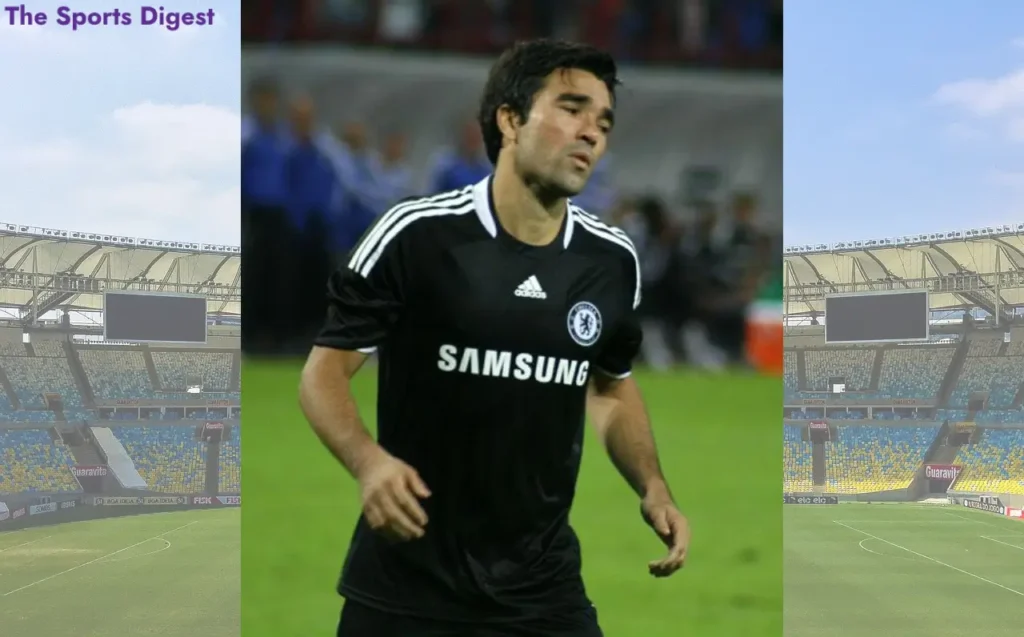
One of Deco’s most impressive traits was his ability to shoot from long range. He scored many stunning goals throughout his career, including some spectacular free kicks and long-distance efforts. His left foot was his most potent weapon, and he often demonstrated his ability to strike the ball with power and accuracy.
Deco’s versatility allowed him to play in various midfield roles, from a deep-lying playmaker to a more advanced attacking role. He was known for his work ethic, defensive contributions, and ability to break up opposition attacks. Deco’s leadership and ability to read the game made him a key figure in any team he played for, and his influence extended far beyond his technical abilities.
Conclusion
Anderson Luís de Souza, or Deco, is undoubtedly one of the greatest midfielders of his generation. His career spanned some of the biggest clubs in the world, and his achievements with Porto, Barcelona, Chelsea, and Fluminense cemented his place as one of the most successful and influential players in football history. Deco’s ability to control the midfield, his creativity, and his technical skill made him a player admired by fans and respected by opponents. Despite not winning a major international trophy with Portugal, Deco’s legacy in the world of football is undeniable, and he will always be remembered as one of the most gifted playmakers to ever grace the game.
Have you ever read an article like this?
There are no reviews yet. Be the first one to write one.
